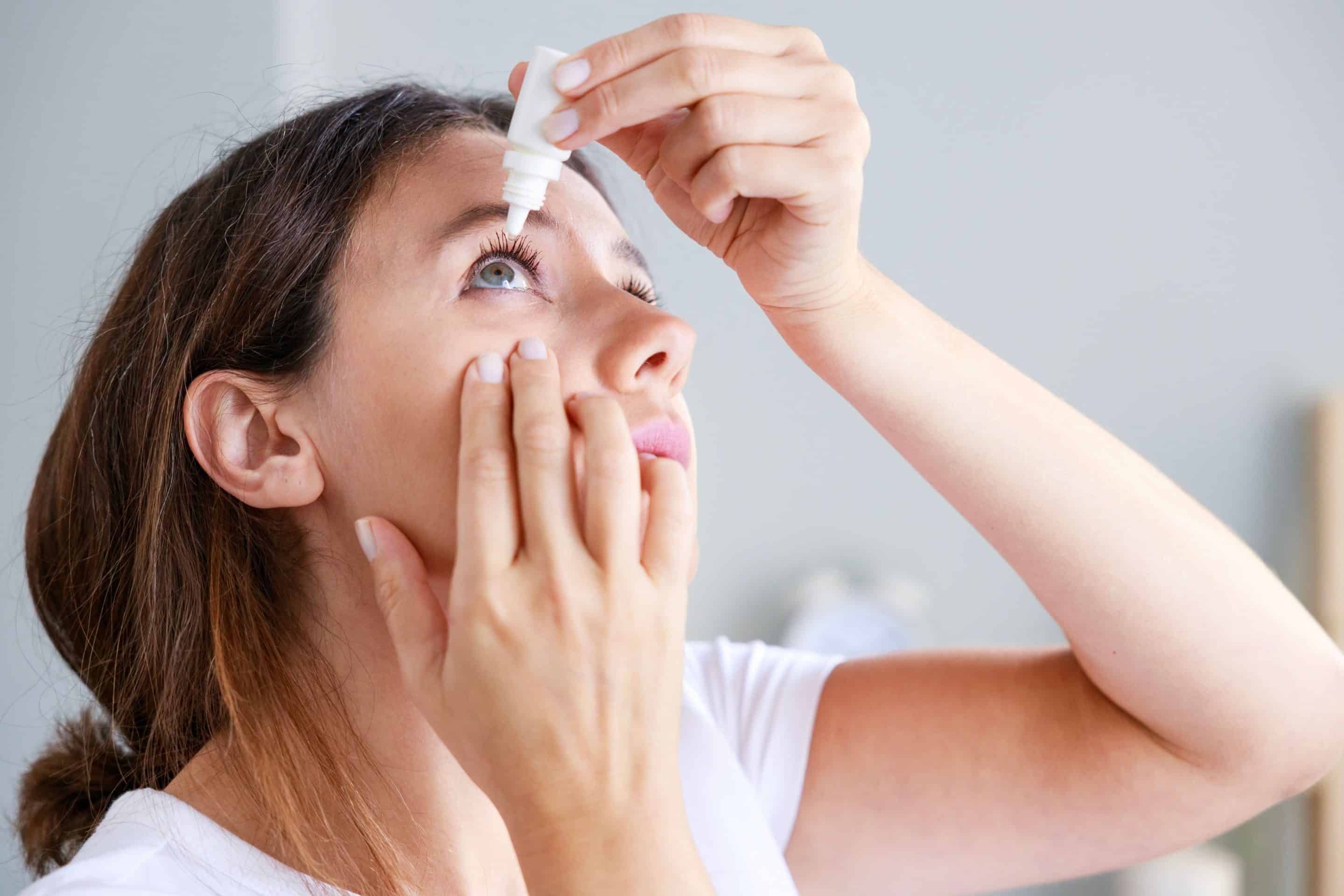Managing Dry Eyes: Causes & Treatment Options in Mountain Brook, AL

Dry eyes can be more than just an uncomfortable nuisance—they can lead to serious long-term vision issues if not properly managed. At Mountain Brook Eye Care, we understand how frustrating it can be to live with dry, irritated eyes, and we’re committed to helping you find lasting relief. Whether it’s from environmental factors, underlying health conditions, or something more complex, our team can provide personalized care to address your unique needs.
In this blog, we’ll cover the common causes of dry eyes, treatment options, and when it’s time to seek professional help. Read on to learn how you can take steps to improve your eye health and get the relief you deserve.
What Are the Common Causes of Dry Eyes?
Dry eyes are often caused by a combination of environmental and biological factors. For some people, it’s as simple as spending too much time in front of a screen or being in an air-conditioned room for long periods. For others, dry eyes can be a symptom of more complex issues.
Environmental factors such as dry air, wind, or pollution can irritate your eyes, making them feel scratchy, itchy, or overly watery. People living in arid climates or working in environments with low humidity often experience these symptoms more acutely.
On the biological side, age plays a significant role. As we age, the quality and quantity of the tear film that lubricates our eyes decreases, leading to dry eye symptoms. Additionally, people who wear contact lenses frequently may experience dry eyes due to the reduced oxygen reaching the cornea.
Underlying health conditions like autoimmune diseases (e.g., rheumatoid arthritis and lupus) and diabetes can also exacerbate dry eyes. These conditions affect your body’s ability to produce adequate tears, leading to ongoing discomfort.
Can Underlying Health Conditions Lead to Dry Eyes?
Yes, certain underlying health conditions can significantly impact your tear production, causing or worsening dry eyes. For example:
- Rheumatoid arthritis: This autoimmune disease attacks the tear glands, reducing their ability to produce tears.
- Lupus: This condition can affect the eyes, leading to inflammation that disrupts the tear-producing glands.
- Diabetes: Elevated blood sugar levels can damage the nerves that control tear production, leading to chronic dry eyes.
If you suffer from any of these conditions, it’s essential to manage your health carefully. We provide tailored solutions that address both your eye health and any underlying health conditions that might be contributing to your symptoms.
What Lifestyle Changes Can Help Manage Dry Eyes?
In addition to medical treatments, simple lifestyle changes can make a big difference in managing dry eyes. Consider incorporating the following habits into your daily routine to help soothe your eyes:
- Use a humidifier: Adding moisture to the air in your home or office can help prevent your eyes from drying out, especially in air-conditioned or heated environments.
- Take frequent breaks: If you work at a computer, follow the 20-20-20 rule—every 20 minutes, take a 20-second break and focus on something 20 feet away to reduce eye strain.
- Avoid wind exposure: Protect your eyes from dry winds by wearing sunglasses or using specialized eyewear when outdoors.
- Stay hydrated: Drinking plenty of water can help maintain proper hydration, which in turn can improve tear production.
These simple changes, combined with professional treatments, can help you manage dry eyes effectively.
What Prescription Medications Are Available for Dry Eye Treatment?
When lifestyle changes and over-the-counter products aren’t enough, prescription treatments may be necessary. There are several prescription options available that can help treat dry eyes more effectively:
- Restasis: This prescription medication helps to increase tear production by reducing inflammation in the eye.
- Xiidra: Like Restasis, Xiidra works to reduce inflammation and improve tear production. It’s an effective treatment for those who don’t respond to other medications.
- Corticosteroid drops: In cases of severe inflammation, corticosteroid eye drops may be prescribed to provide rapid relief.
We work with you to determine the most appropriate treatment plan based on your symptoms and health history.
When Should You Seek Professional Help for Dry Eyes?
While many people can manage dry eyes with over-the-counter treatments, there are times when professional care is necessary. If you experience any of the following symptoms, it’s time to consult an optometrist:
- Persistent symptoms: If your dry eyes continue to affect your daily life despite using over-the-counter drops or other remedies, professional care may be needed.
- Severe discomfort: If your eyes are painful, red, or swollen, you should seek help immediately.
- Vision changes: Dry eyes can lead to blurry vision, and in some cases, it can cause more serious damage to your eye health if left untreated.
We offer a comprehensive dry eye evaluation using advanced diagnostic tools to assess the severity of your condition and determine the best course of action. Our personalized care approach ensures you receive the most effective treatment for your needs.
Additional Treatment Options for Severe Dry Eyes
For those with chronic or severe dry eyes, more advanced treatments may be necessary. Some of the options include:
- Punctal plugs: These tiny devices are inserted into the tear ducts to block drainage, keeping tears on the surface of the eye longer.
- LipiFlow: This is a cutting-edge treatment that uses heat and gentle pressure to treat the meibomian glands, which are often responsible for evaporative dry eye.
- Surgical options: In extreme cases, surgical procedures may be recommended to correct underlying issues that are contributing to dry eyes.
Our goal at Mountain Brook Eye Care is to provide long-term relief for your dry eye symptoms, whether that’s through advanced treatments or ongoing management.
Don’t Let Dry Eyes Hold You Back—Get Expert Care Now
Dry eyes don’t have to control your life. By understanding the causes, symptoms, and treatment options available, you can take proactive steps toward better eye health. At Mountain Brook Eye Care, we offer a range of solutions to treat dry eyes and improve your comfort.
If you’ve been struggling with dry eye symptoms, don’t wait to seek help. Schedule an appointment today at Mountain Brook Eye Care in Mountain Brook, AL. Dr. Edgerly and our skilled team is here to provide you with the personalized care you deserve, ensuring your eyes stay healthy and comfortable.
Dr. Jeremy Edgerly
Dr. Edgerly has been actively practicing optometry since 2012 in a family practice setting. He is confident in his ability to accurately diagnose, treat and manage conditions of the eye and local structures. He attended the University of Alabama at Birmingham and earned a Bachelor of Science. Upon completing his undergraduate studies, he enrolled in the UAB School of Optometry, where he earned a Doctorate in Optometry. There, he received specialized training in ocular diseases, contact lenses, pediatrics, and refractive and cataract surgery co-management.

